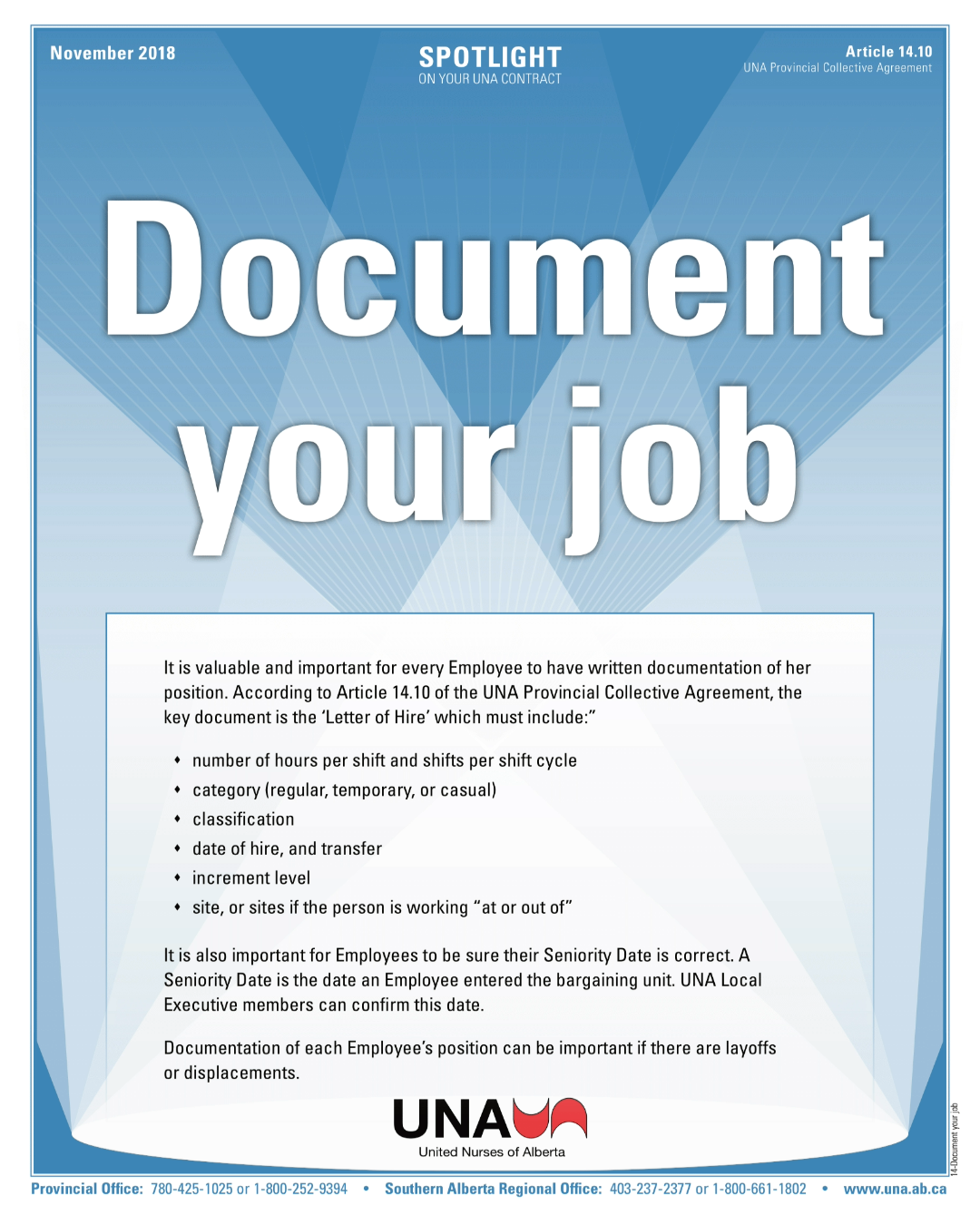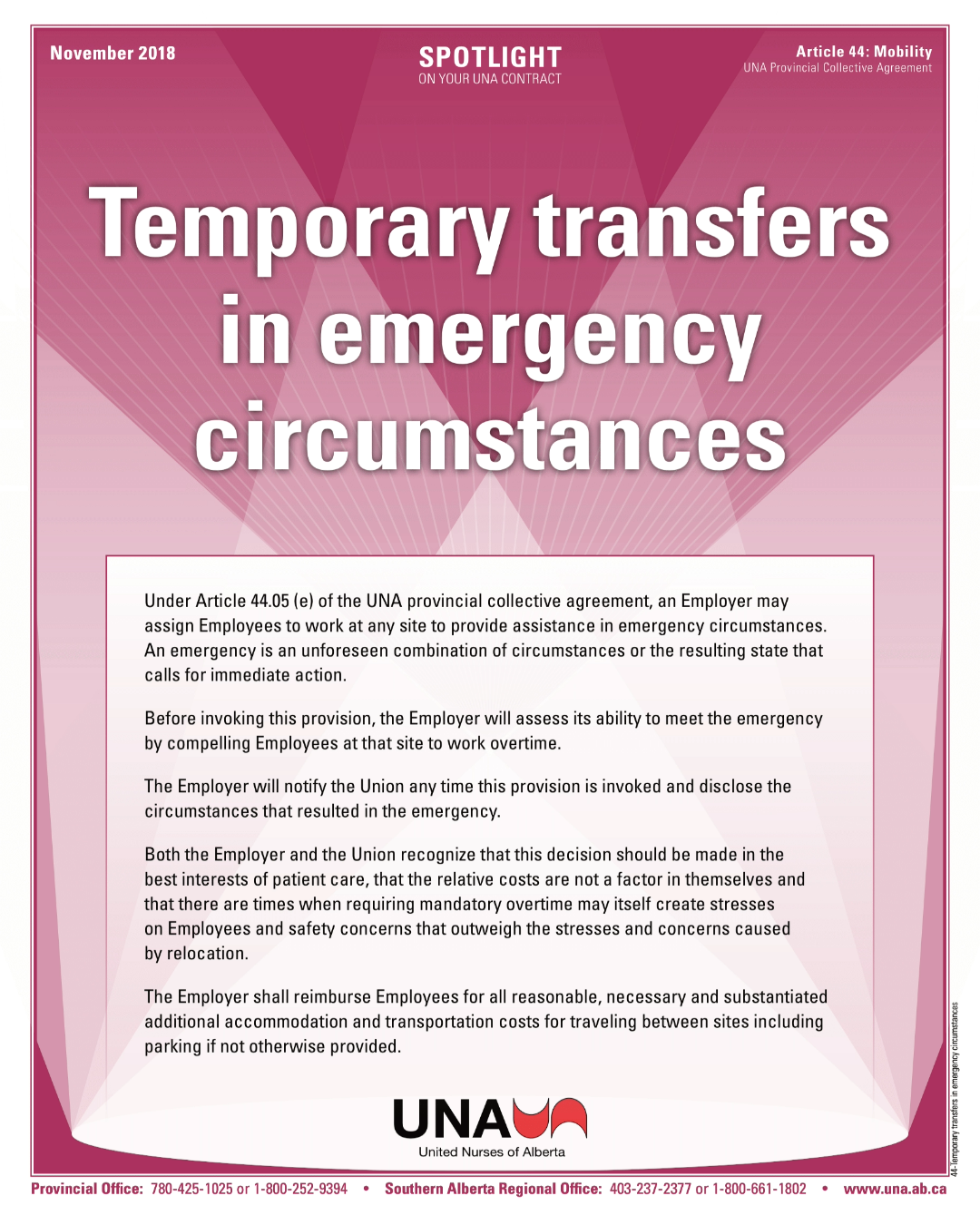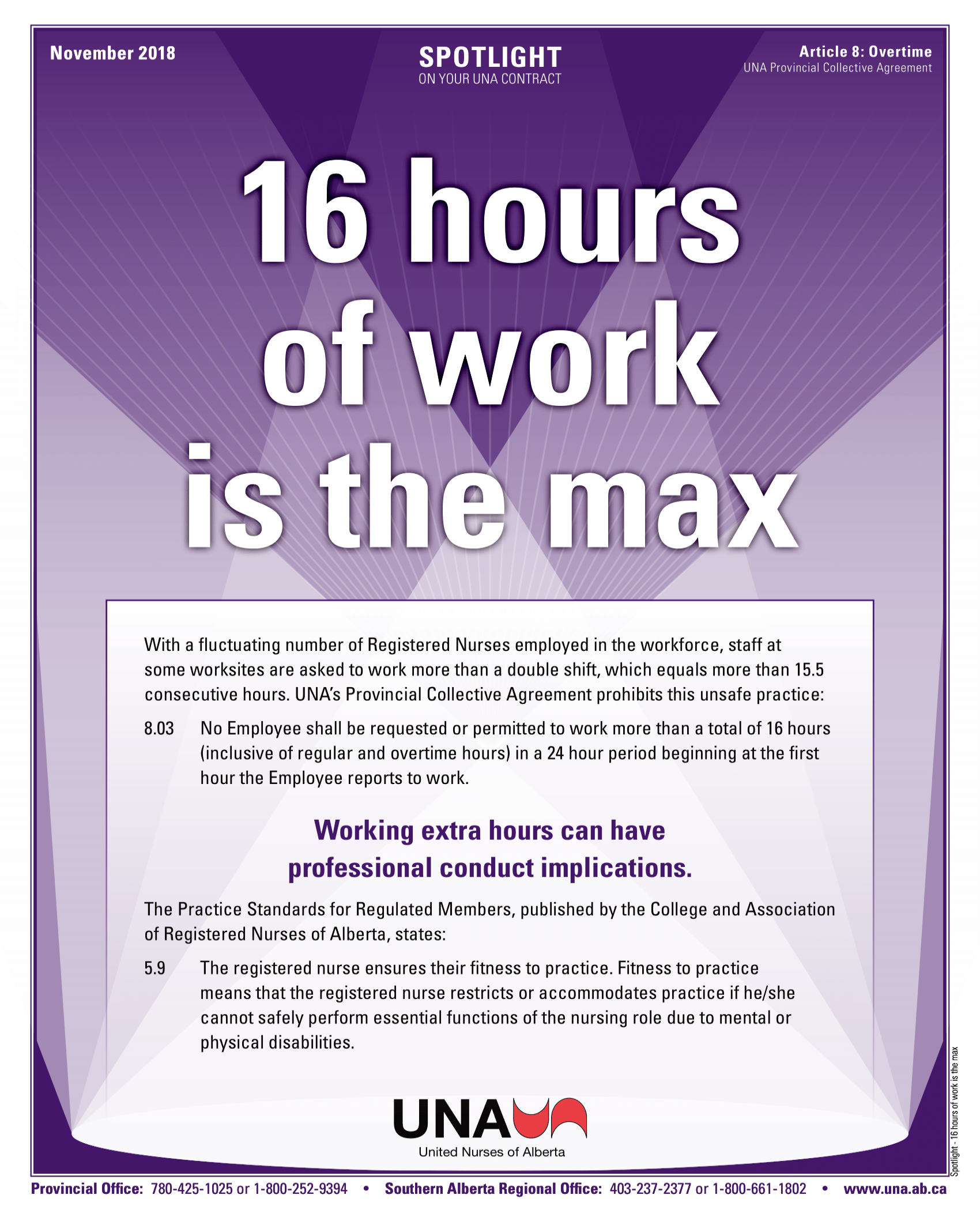The UNA Resources, Local Updates and Newsletter Blog
Stop trying to find information all over the web. Start below with a simple access to read the blog’s United Nurse of Alberta (UNA) resources, UNA Local 115 updates and our newsletter so you can be informed!
Catagories:
Local | Newsletters | UNA
Archive
- April 2025
- March 2025
- January 2025
- December 2024
- November 2024
- October 2024
- July 2024
- May 2024
- April 2024
- March 2024
- February 2024
- January 2024
- December 2023
- November 2023
- October 2023
- September 2023
- August 2023
- June 2023
- May 2023
- April 2023
- March 2023
- February 2023
- November 2022
- August 2022
- June 2022
- May 2022
- April 2022
- March 2022
- January 2022
- November 2021
- October 2021
- September 2021
- June 2021
- May 2021
- March 2021
- February 2021
- January 2021
- August 2020
- June 2020
- May 2020
- April 2020
- March 2020
- December 2019
- October 2019
- September 2019
- July 2019
- April 2019
- February 2019
- January 2019
- December 2018
- November 2018
- October 2018
- August 2018
- November 2017
- June 2017
- April 2017
- January 2017
- September 2016
- April 2016
- December 2015
- October 2015
- May 2015
- March 2015
- January 2015
- November 2014
- September 2014
- June 2014
- April 2014
- September 2013
- June 2013
- April 2013
- February 2013
- October 2012
- April 2012
- February 2012
- November 2011
- October 2011
- September 2011
- March 2011
- February 2011
- December 2010
- August 2010
- April 2010
- February 2010
- December 2009
- October 2009
- August 2009
- June 2009
- May 2009
- August 2008
- January 2008
- December 2007
- July 2007
- May 2007
- April 2007
- March 2007
- February 2007
- January 2007
- December 2006
- November 2006
- October 2006
- September 2006
- August 2006
- July 2006
- June 2006
- May 2006
- April 2006
- March 2006
- February 2006
- January 2006
- December 2005
- November 2005
- October 2005
- September 2005
- August 2005
- July 2005
- June 2005
- May 2005
- April 2005
- March 2005
- February 2005
- January 2005
- December 2004
- November 2004
- October 2004
- September 2004
- June 2004
- May 2004
- April 2004
- February 2004
- January 2004
- December 2003

Get paid for every hour on-call
Get paid for every hour on-call
According to Article 9.03 of UNA’s Provincial Collective Agreement, an Employee who is assigned On-Call Duty on a regular work day is paid a premium of $3.30 per hour. If it is a day of rest or a Named Holiday, the premium rate if $4.50 per hour. Article 9.04 (b) states that if an Employee is called back to work, it is deemed to be overtime. The overtime rate must be paid for all the hours worked or the minimum of three hours, in addition to the On-Call pay. An Employee who is on-call and is called back to duty is entitled to 50.5 cents per kilometre (or other reasonable transportation costs) for travel to and from her place of residence and work.

Document your job
Document your job
It is valuable and important for every Employee to have written documentation of her position. According to Article 14.10 of the UNA Provincial Collective Agreement, the key document is the ‘Letter of Hire’ which must include:” number of hours per shift and shifts per shift cycle category (regular, temporary, or casual) classification date of hire, and transfer increment level site, or sites if the person is working “at or out of” It is also important for Employees to be sure their Seniority Date is correct. A Seniority Date is the date an Employee entered the bargaining unit. UNA Local Executive members can confirm this date. Documentation of each Employee’s position can be important if there are layoffs or displacements.

Temporary transfers in emergency circumstances
Temporary transfers in emergency circumstances
Under Article 44.05 (e) of the UNA provincial collective agreement, an Employer may assign Employees to work at any site to provide assistance in emergency circumstances. An emergency is an unforeseen combination of circumstances or the resulting state that calls for immediate action. Before invoking this provision, the Employer will assess its ability to meet the emergency by compelling Employees at that site to work overtime. The Employer will notify the Union any time this provision is invoked and disclose the circumstances that resulted in the emergency. Both the Employer and the Union recognize that this decision should be made in the best interests of patient care, that the relative costs are not a factor in themselves and that there are times when requiring mandatory overtime may itself create stresses on Employees and safety concerns that outweigh the stresses and concerns caused by relocation. The Employer shall reimburse Employees for all reasonable, necessary and substantiated additional accommodation and transportation costs for traveling between sites including parking if not otherwise provided.

16 hours of work is the max
16 hours of work is the max
With a fluctuating number of Registered Nurses employed in the workforce, staff at some worksites are asked to work more than a double shift, which equals more than 15.5 consecutive hours. UNA’s Provincial Collective Agreement prohibits this unsafe practice: 8.03 No Employee shall be requested or permitted to work more than a total of 16 hours (inclusive of regular and overtime hours) in a 24 hour period beginning at the first hour the Employee reports to work. Working extra hours can have professional conduct implications. The Practice Standards for Regulated Members, published by the College and Association of Registered Nurses of Alberta, states: 5.9 The registered nurse ensures their fitness to practice. Fitness to practice means that the registered nurse restricts or accommodates practice if he/she cannot safely perform essential functions of the nursing role due to mental or physical disabilities.



